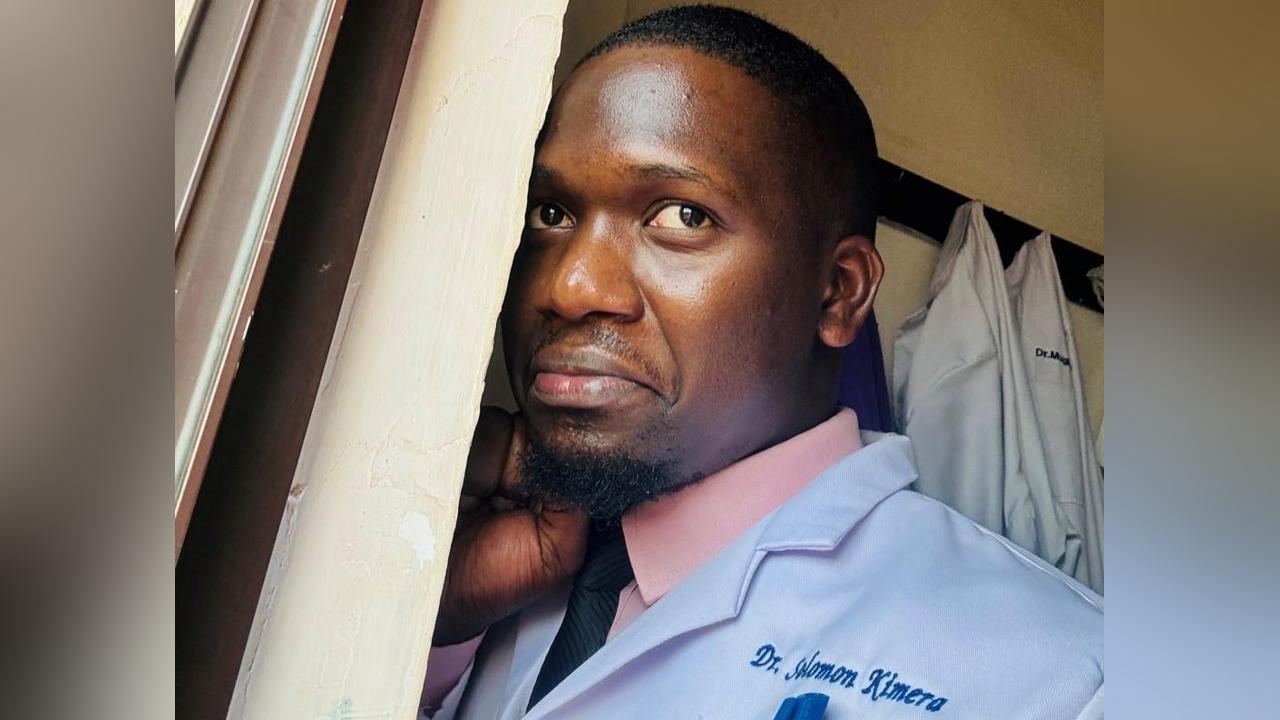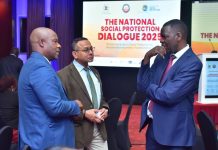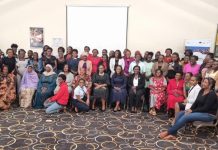Africa-Press – Uganda. In a now-circulating tweet, Dr. Solomon Kimera quipped:
“Girls today: ‘I want to first be an independent, financially stable woman before I get any kids.’
Meanwhile, fibroids looking at you like…”
He shared the tweet accompanied by his picture, which in his context showed how fibroids would look at women who decided not to rush into childbearing and instead focus on themselves before bringing another life into the world.
While perhaps intended to be humorous, the statement is not only medically misleading but also reinforces damaging stereotypes about women’s reproductive choices and bodily autonomy.
First, the tweet trivialises a legitimate and important aspiration—where women choose to first attain financial independence and stability before taking on the lifelong responsibility of raising children.
Gender justice is still an issue in the world, Uganda included; women are still fighting to be recognised as more than just child bearers.
To mock this desire for independence is to ignore the economic, emotional, and social weight that motherhood carries. It also undermines the desire for women to achieve equity and equality, hence they continue to lag behind.
Calling these women “girls” and making light of their life plans—as if fibroids are just waiting to ruin them—not only talks down to them but also turns a real health issue into a tool for shaming their choices.
As I scrolled down the comment section, I couldn’t help but notice that a number of tweeps did not fully understand what fibroids were, or why so many people were angered by the tweet.
Fibroids, or uterine leiomyomas, are non-cancerous growths that develop in the uterus. They affect an estimated 20–80% of women globally, depending on age and ethnicity. While it’s true that fibroids are more likely to appear as women age, many women with fibroids conceive and carry healthy pregnancies—especially with early diagnosis and appropriate medical management.
African women are more at risk due to a mix of genetics, hormones, and environmental factors. These hormones include estrogen and progesterone, which control menstrual periods.
What’s missing from Dr. Kimera’s tweet is context. Fibroids can impact fertility in some cases, but the presence of fibroids alone does not guarantee infertility. Additionally, their severity depends on multiple factors. Equating a woman’s career goals with a ticking fibroid time bomb is misleading and fear-mongering.
When this kind of misinformation reaches less informed individuals, it induces fear—which I believe already happened, as many inboxed Dr. Jan Mukiibi with panicked questions, including one man who asked whether his decision to delay having children would impact his fertility.
The decision of when or whether to have children is deeply personal and can be influenced by a variety of factors—emotional readiness, financial preparedness, access to a supportive partner, or health conditions like PCOS, endometriosis, or fibroids.
Instead of discouraging women from planning their futures, the medical community should be educating and empowering them with accurate information. Telling women to “hurry up and reproduce before fibroids catch up with them” is not a responsible medical stance—it’s paternalistic at best and harmful at worst. In my opinion, the doctor in question could have avoided this entirely if he truly cared about the people he calls patients.
As a medical professional with influence, Dr. Kimera could have used his platform to:
Educate women about fibroids and their early symptoms;
Promote access to reproductive health screenings;
Encourage regular gynaecological visits;
Advocate for supportive environments where women can pursue both career and family, if they choose to.
Empowerment doesn’t come from pressuring women with biological alarm bells—it comes from supporting them with facts and compassionate care.
And if I’m being honest, most women worldwide are no longer shaken by the biological clock. They have matured enough to understand that motherhood should come in harmony with their careers.
Mocking women’s reproductive timelines does nothing to advance health education or gender equality. If we want a healthier society, we must start by respecting the right of every woman to make informed, empowered choices about her life and her body without fear, shame, or sarcasm.
As tweeps continue to attack this doctor, I pray he finds the courage not only to apologise to women but also to educate himself, as a medical professional, on women’s reproductive health.
I also hope that those attacking him recognise the impact their words can have on his mental well-being, and stop before any further harm is done.
For More News And Analysis About Uganda Follow Africa-Press






